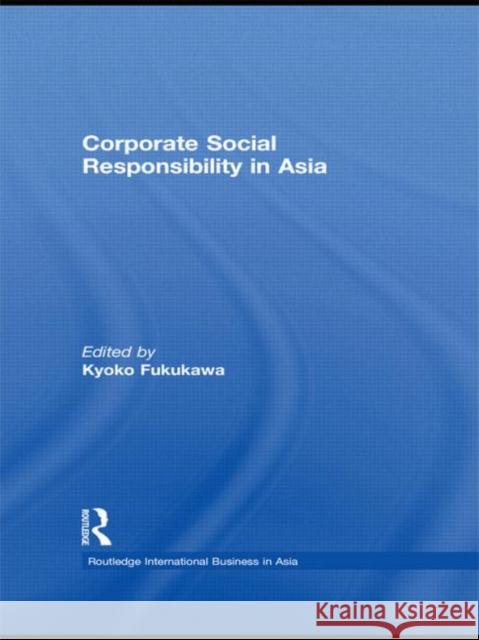Corporate Social Responsibility in Asia » książka
Corporate Social Responsibility in Asia
ISBN-13: 9780415459358 / Angielski / Twarda / 2010 / 192 str.
Corporate Social Responsibility in Asia
ISBN-13: 9780415459358 / Angielski / Twarda / 2010 / 192 str.
(netto: 717,11 VAT: 5%)
Najniższa cena z 30 dni: 730,42
ok. 22 dni roboczych
Dostawa w 2026 r.
Darmowa dostawa!
Corporate Social Responsibility (CSR) is an important issue in contemporary business, management and politics, especially since the launch of the United Nations Global Compact in 2000 as an initiative to encourage businesses worldwide to adopt sustainable and socially responsible policies, and to report on them. This book examines the theory and practice of CSR in Asia. The philosophical and ideological underpinnings of CSR are rooted in Anglo-American and European principles of liberal democratic rights, justice and societal structures. This book not only considers the impact of Western CSR practices in Asia, but also provides much needed Asian perspectives on this issue. It investigates the operation of CSR in different countries across Asia, including China, Japan, Malaysia, Thailand and Bangladesh - comparing the different meanings given to CSR, and the varying degrees of success experienced in different national contexts. This book argues if CSR is ever to revolutionize the manner in which we trade then it is needs to open itself up to the full variety of social responsibility as it occurs around the world. The book re-maps and refines debates about CSR as a global phenomenon, and will be of great value to professionals making strategic decisions in the global business environment.
Corporate Social Responsibility (CSR) is an important issue in contemporary business, management and politics, especially since the launch of the United Nations Global Compact in 2000 as an initiative to encourage businesses worldwide to adopt sustainable and socially responsible policies and to report on them. This book examines the theory and practice of CSR in Asia. The philosophical and ideological underpinnings of CSR are rooted in Anglo-American and European principles of liberal democratic rights, justice and societal structures. This book not only considers the impact of Western CSR practices in Asia, but also provides much needed Asian perspectives on this issue. Arguing that Western CSR has enjoyed limited effectiveness, it asks whether Asia can avoid the mistakes that have plagued its operation in the West. It investigates the operation of CSR in different countries across Asia, including China, Japan, Malaysia, Thailand and South Asia, contrasting the different meanings given to this term and the varying degrees of success experienced in different national contexts. With Asia being home to the fastest growing economies in the global economy, this book shows clearly that the future prospects of CSR will depend greatly on what form it can take to be globally acceptable and properly observed.











